Blog by: Nicholas Cocks
Earlier this month, HSBC published its Global Travel Trends Report, which sheds light on several key developments in the travel industry. At Velocity Ventures, we’ve been closely following these trends, and we’re excited to share a concise summary for you to quickly digest the most important takeaways. Here’s what you need to know:
Rapid Recovery and Future Growth
The global tourism industry has experienced a remarkable rebound following the COVID-19 pandemic, surpassing many experts’ expectations. Key points include:
- Total traveller outlays in 2024 are estimated at USD8.6 trillion, approximately 9% of global GDP (Oxford Economics, 2024).
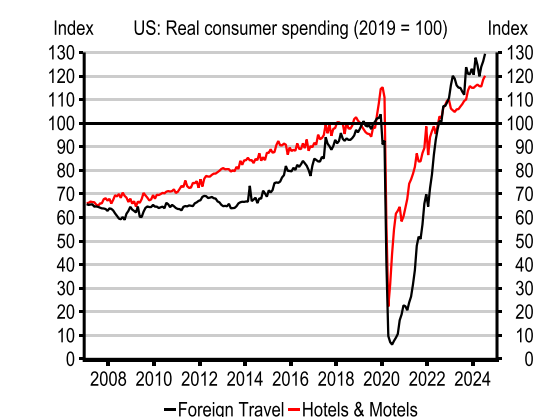
American spending on overseas travel in early 2024 was 20% higher than in 2019, adjusted for inflation.
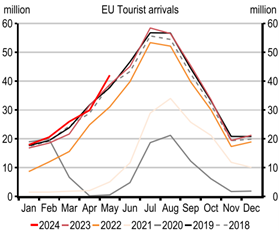
EU tourist arrivals have surpassed 2019 levels across the board, with notable increases in Greece, Spain, and Italy (HSBC, 2024).
The report predicts continued growth in global travel demand, driven by:
a) Rising middle class in emerging economies:
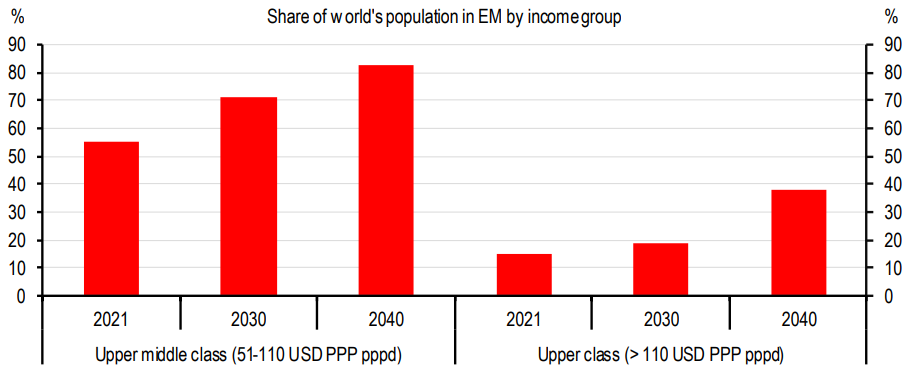
- By 2030, 70% of the world’s upper-middle-class population is expected to be living in emerging economies (HSBC estimates).
- Projected 9% annual growth in inflation-adjusted travel spending from India and 7% from Southeast Asia and Eastern Europe between 2023 and 2030 (Oxford Economics).
b) Changing consumer preferences:
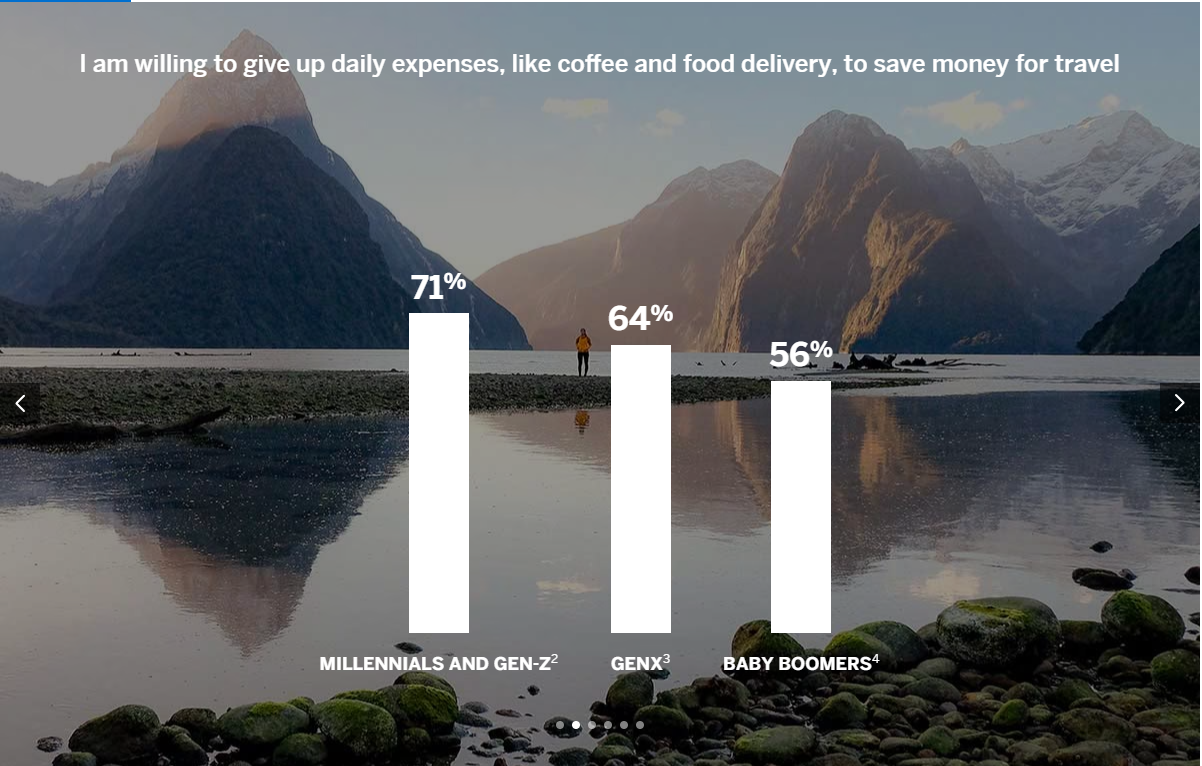
- 65% of people surveyed across the US, Canada, Australia, and UK expressed increased interest in taking major trips in 2024 compared to previous years (2024 Global Travel Trends Report, American Express).
- 72% of respondents preferred saving for a major trip over going out with friends (2024 Global Travel Trends Report, American Express).
c) Demographic shifts:
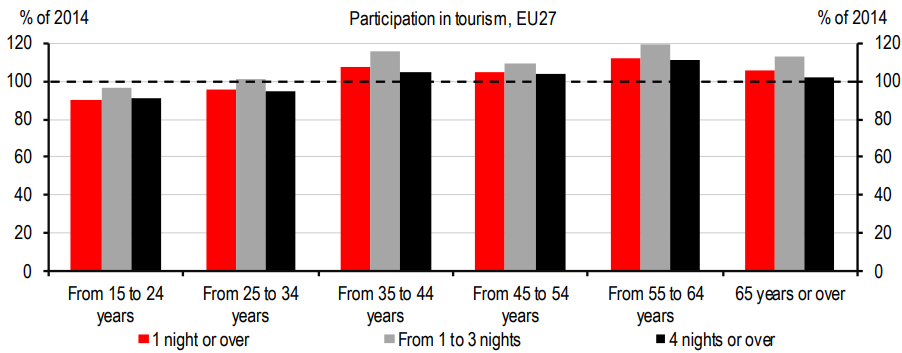
- Aging global population with more retirees having time and resources for travel.
- Projected 81% increase in luxury traveler spending from those aged 50+ between 2023-2028 (McKinsey, 2024).
d) Emerging Trends and Changing Travel Patterns
The report identifies several key trends shaping the future of global travel:
- Shift in travel destinations:
- Growing popularity of non-traditional destinations, e.g., Albania and Bulgaria in Europe.
- Potential climate change impacts on tourism patterns, with Northern European destinations potentially benefiting (European Commission research).
- Rise of event-driven travel:
- 37% of people planned to travel for sporting events in 2024 (2024 Global Travel Trends Report, American Express).
- Increasing popularity of “concert tourism,” e.g., Singapore’s success with major international artists (HSBC, 2024).
- Growth in medical tourism:
- Significant cost savings driving US residents to seek medical care abroad, e.g., knee replacement costing $35,000 in the US vs. $10,500 in Mexico (Medical Tourism Association, 2024).
- UK residents increasingly travel to Central/Eastern Europe for medical treatments due to NHS waiting times (ONS data).
- Luxury travel expansion:
- Projected 10% annual growth in the European luxury hotel industry between 2023 and 2028 (Savills, 2024).
- Rapid expansion of luxury hotels in Asia and the Middle East to meet growing demand (McKinsey, 2024).
Challenges and Risks
Despite the positive outlook, the report highlights several challenges facing the global travel industry:
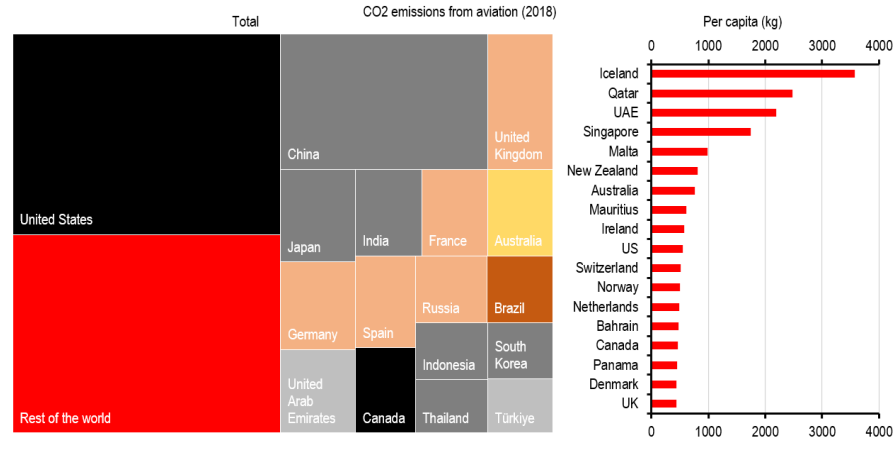
- Environmental impact:
- Travel accounts for approximately 8% of global carbon emissions (Lenzen et al., 2018).
- Potential for increased taxes on air travel or shifts to more eco-friendly travel options.
- Overtourism:
- Popular destinations facing capacity issues and local backlash, e.g., Venice introducing access fees for day-trippers and Barcelona experiencing anti-tourism protests (Financial Times, 2024).
- Implementation of tourist taxes and restrictions on new hotel construction in some locations.
- Inflation risks
- Supply constraints in popular destinations lead to price increases.
- Hotel prices contributing to elevated services inflation in Europe, complicating central bank policy decisions (HSBC, 2024).
- Geopolitical uncertainties
- Potential impact of global events and economic fluctuations on travel patterns and spending.
Conclusion
The HSBC report paints a picture of a robust and rapidly evolving global travel and hospitality industry. While the sector has shown remarkable resilience and growth potential, it also faces significant challenges related to sustainability, capacity, and economic impacts. The future of travel will likely be shaped by the industry’s ability to adapt to changing consumer preferences, technological advancements, and environmental concerns while managing the socio-economic impacts on popular destinations. As the travel landscape continues to evolve, stakeholders across the industry – from policymakers to businesses and consumers – will need to navigate these challenges and opportunities to ensure sustainable and responsible growth in the years to come.
To read the full report, click here.
Feature Image Credits: Canva
References
American Express. (2024). 2024 Global Travel Trends Report.
European Commission. (2024). Research report on climate change impact on tourism demand.
HSBC. (2024). Holiday romance: How strong is the travel megatrend?
Lenzen, M., Sun, YY., Faturay, F. et al. (2018). The carbon footprint of global tourism. Nature Climate Change, 8, 522–528.
McKinsey. (2024). The way we travel now.
Medical Tourism Association. (2024). Comparative cost analysis of medical procedures.
Oxford Economics. (2024). Global tourism outlook report.
Savills. (2024). European luxury hotel market analysis.
The Financial Times. (2024, July 23). The cost of Europe’s backlash against tourists.



